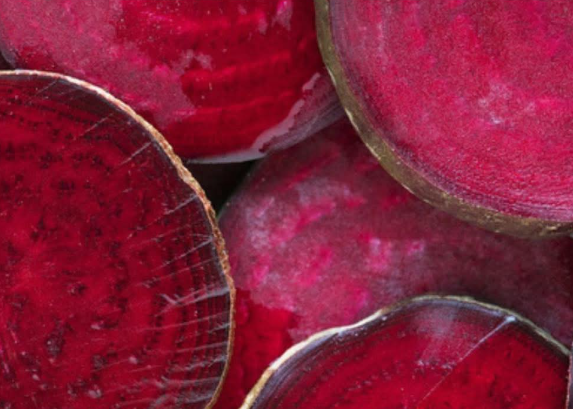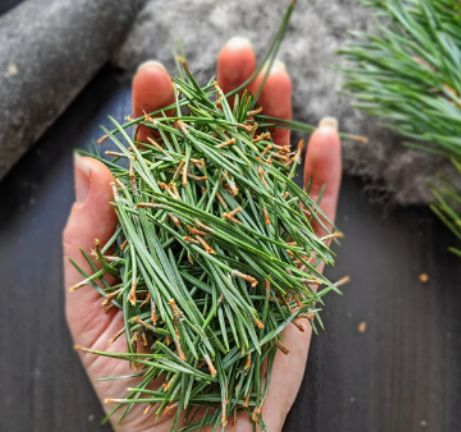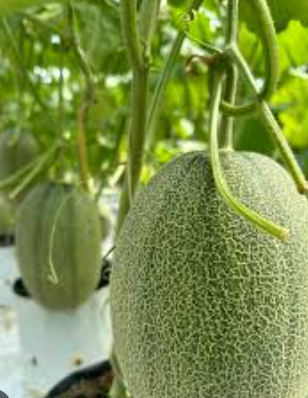Unlock the Healing Power of Beets: Why This Overlooked Superfood Should Be in Your Diet Now 🚀
When we think of superfoods or powerful vegetables that promote health and healing, beets often don’t make the top of the list. This vibrant root vegetable is frequently overlooked, even though it boasts a wealth of health benefits and medicinal properties that can transform your well‑being. It’s time to shed some light on this underappreciated veggie and explore why you should make it a regular part of your diet.
The Nutritional Power of Beets 🌿
Beets are not only delicious, but they’re also a powerhouse of essential vitamins, minerals, and phytonutrients. Here’s what makes them so special:
- Rich in Essential Nutrients: Beets are packed with vitamins A, C, B6 and minerals like iron, magnesium, potassium, and manganese. They’re also high in dietary fiber, supporting digestion and gut health.
- Packed with Antioxidants: The betalains responsible for the beet’s distinctive red hue are potent antioxidants that combat oxidative stress and inflammation.
- Nitrate‑Rich: Dietary nitrates in beets convert to nitric oxide, helping relax blood vessels, improve circulation, and lower blood pressure.
Health Benefits of Beets: Why You Should Eat Them Regularly
1. Supports Heart Health and Lowers Blood Pressure ❤️
Expert Insight – Dr. Leila Nour, Cardiologist: “Beetroot juice has shown significant reduction in systolic and diastolic blood pressure, often within a few hours. Patients with mild hypertension can benefit from just one glass a day.”
The nitrates in beets dilate blood vessels, allowing smoother blood flow and naturally reducing blood pressure levels.
How to Use: Enjoy a glass of fresh beet juice daily or add cooked beets to salads and roasted veggie platters.
2. Boosts Energy and Enhances Athletic Performance 🏃♀️
Beet nitrates improve mitochondrial efficiency, enabling your body to produce more energy per oxygen molecule. This translates to better stamina and performance during exercise.
How to Use: Drink beet juice 2–3 hours before workouts, or incorporate beets in meals the day before an event or long session.
3. Promotes Digestive Wellness
High fiber content supports smooth digestion, prevents constipation, and nurtures healthy gut flora—potentially reducing risks of IBS and diverticulitis.
How to Use: Add grated raw beets to salads or toss roasted beets into grain bowls for a fiber-rich meal.
4. Supports Liver Detoxification
Betaine, a compound abundant in beets, protects liver cells, enhances detox pathways, and helps reduce fatty liver accumulation.
How to Use: Blend beets with apple, carrot, and ginger into a vibrant detox smoothie to support liver function.
5. Fights Inflammation & Oxidative Stress
Chronic inflammation contributes to arthritis, heart disease, and cancer. Betalains and antioxidants in beets counteract inflammation and free radical damage.
How to Use: Make beetroot hummus, salads, or soups a weekly staple to keep damaging inflammation at bay.
6. Supports Brain Health & Cognitive Function 🧠
Prof. Mark Benson, Neurologist: “Improved cerebral blood flow from dietary nitrates can enhance memory and cognitive function. It’s a promising strategy in slowing age‑related decline.”
How to Use: Include beet juice or roasted beets daily to nourish your brain and help maintain mental clarity.
7. Enhances Skin Health & Collagen Production ✨
Beets’ vitamin C and antioxidants bolster collagen formation, improving skin elasticity and smoothing fine lines.
How to Use: Consume beets regularly for radiant skin, or try DIY beet juice facemasks (mix with yogurt/honey) for a natural glow boost.
8. Aids Weight Management
Low in calories but high in fiber, beets help you feel full, making them perfect for weight-loss or maintenance diets.
How to Use: Use shredded beets as a base for vibrant salads, or blend them into smoothies for satisfying, healthy snacks.
9. Essential During Pregnancy 🤰
High folate (vitamin B9) content helps prevent developmental issues in the fetus, especially neural tube defects.
How to Use: Add cooked beets to meals or enjoy beet juice—but always consult your healthcare provider before making dietary changes during pregnancy.
10. Natural Remedy for Anemia
Rich in iron and vitamin C (which improves iron absorption), beets support red blood cell production and combat anemia symptoms.
How to Use: Drink a beetroot‑spinach‑lentil smoothie or eat salads that combine beets with iron-rich foods.
🔍 Nutrition & Health Benefits Table
| Nutrient | Per 100 g Cooked Beets | Health Benefits | Approx. Weight |
|---|---|---|---|
| Calories | 44 kcal | Low‑energy, weight‑friendly | 100 g |
| Fiber | 4.5 g | Supports digestion & satiety | 100 g |
| Vitamin C | 4 mg | Collagen support, antioxidant | 100 g |
| Folate | 80 µg | Supports fetal development, RBCs | 100 g |
| Iron | 0.8 mg | Prevents anemia | 100 g |
| Potassium | 305 mg | Blood pressure regulation | 100 g |
| Betalains | – | Antioxidant & anti‑inflammatory | 100 g |
| Betaine | 15 mg | Liver detox support | 100 g |
How to Incorporate More Beets into Your Diet
Here are some delicious and versatile ways to include beets in your meals:
- Beet Smoothies: Blend beets with apples, berries, bananas, and ginger for a vibrant, nutrient-rich drink.
- Beet Salads: Use raw or roasted beets in salads with goat cheese, walnuts, leafy greens, and vinaigrette.
- Beet Juice: Juice raw beets with carrots, apples, and ginger to create a refreshing detox beverage.
- Roasted Beets: Toss with olive oil, salt, and pepper, then roast until caramelized—ideal as a hearty side dish.
- Pickled Beets: Create tangy, sweet-sour pickles; perfect in sandwiches, salads, or as a snack.
- Beet Hummus: Puree cooked beets into hummus for creamy dips, vibrant in color and flavor.
🍴 Related Recipes & Resources
Looking for tasty beet-based recipes? Head over to Gentplu.com for creative ideas like beet‑carrot‑ginger smoothies, roasted beet bowls, and easy pickled beet tutorials.
10 FAQs About Beets
- Can diabetic individuals eat beets?
Yes—while they contain natural sugars, the fiber slows sugar absorption. Monitor portions and pair with protein/fat for better glycemic control. - Do beets cause kidney stones?
Beets are high in oxalates, which may contribute to kidney stones in susceptible individuals. If you’re prone, consume in moderation. - Is beet juice safe during pregnancy?
Generally yes—consult with your obstetrician. Packed with folate and iron, beets can support pregnancy nutrition. - Can beets help with detox?
Betaine supports liver detox processes naturally. Beets aid, but do not replace a healthy lifestyle. - Will beets stain urine (beeturia)?
Yes—up to 10–14% of people experience pink/red urine after eating beets, usually harmless unless persistent. - How much beet should I consume daily?
About ½ cup cooked (75 g) or 1 small juice (6 oz) provides health benefits for healthy adults. - Are golden beets as beneficial?
Golden beets have a milder taste and lower betalain content, but still offer fiber, vitamins, and minerals. - Can beets interfere with medications?
They may enhance blood pressure medication effects. If taking meds, consult your doctor before dramatically increasing intake. - Can children eat beets?
Yes—start with cooked beets or diluted juice to avoid strong taste and mild coloring effects. - Do beets support mental health?
By improving cerebral blood flow and reducing inflammation, beets may support mood regulation. More research is emerging.
Final Thoughts 🍯
Despite being overlooked compared to trendier superfoods, beets are a natural powerhouse with holistic benefits—from heart and brain health to skin glow, liver support, and more. Packed with essential nutrients, antioxidants, and fiber, this humble root deserves a regular spot in your meals.
If you’re new to beets, start small—try a salad topping, juice, or smoothie. For ongoing health benefits, aim for 3–4 servings per week and pay attention to your body’s responses.
So the next time you’re at the market, grab a bunch of beets—your body (and taste buds) will thank you!






